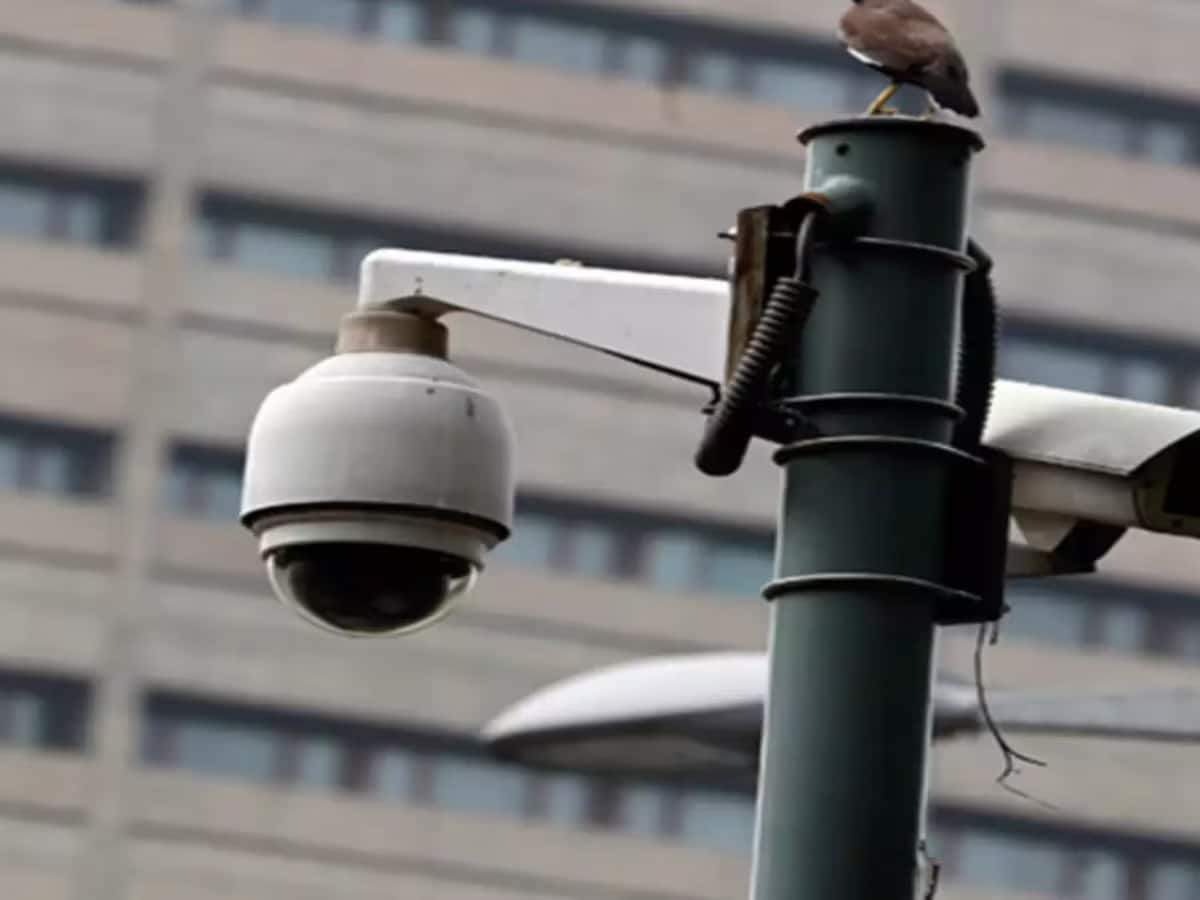
India Survelance Policy: Amid increasing espionage hazards from China, the Indian government has made significant changes in the rules of internet based CCTV cameras. The government has changed the security policy regarding surveillance industry i.e. CCTV cameras. In view of the current situation, the government has implemented new and more strict rules for testing all CCTVs and other security cameras. The industry has expressed concern about this new security check policy. Chinese companies say that this may cause a supply chain obstruction.
Change in security policy
According to a senior official associated with the policy, the new security policy of the Government of India has been made due to increasing concern over China’s advanced monitoring capabilities. In 2021, Parliament was told that about 10 lakh CCTV cameras in government institutions belong to Chinese companies and video data related to them is sent to foreign servers, where serious deficiencies were found for the security of data. The new rules have come into effect from April. According to them, now companies such as Hikvision, Xiaomi and Dahua, Hanva of South Korea and Motorola Solutions of America will have to submit their cameras to the government lab before selling in India. This rule is applied to all internet -related CCTV cameras from 9 April 2025 which have been made in India or imported from abroad.
CCTV cameras threat of espionage
Former India’s cyber security chief Gulshan Rai said in a conversation with Reuters, “There is always a danger of espionage. Any person can sit away and control CCTV cameras associated with the Internet. So these cameras should be strong and safe.” On April 3, Indian officials held a meeting with representatives of 17 foreign and Indian companies including Hanva, Motorola, Bosch, Honeywell and Xiaomi. During the meeting, many companies said that they are not ready to meet the new security certification rules and demanded a delay in implementing them. However, the government turned down his request and said that this policy is necessary to remove a “real security concern” and will be implemented in any case. The Government of India said in December last year that these rules do not target any one country, but their purpose is to improve the quality and cyber security of monitoring equipment in the country.
Report on CCTV rules revealed
According to the report, information related to the meetings, email records and technical investigation operations between the camera companies and the IT Ministry of India. These things were not revealed before. Camera manufacturers said that the process of approval has slowed down due to issues such as limited Test facility in India, delay in factory inspection and government investigation of sensitive software code. There is a danger of many essential infrastructure and obstruction in business projects.
Ajay Dubey, director of Hanva Company in South Asia, warned in an email sent to the IT Ministry on 9 April that, “This rule could cause a loss of millions of dollars to a loss of millions of dollars, causing a big stir in the market.”
India’s camera market is growing rapidly
Most of the companies contacted by the Ministry of IT and Reuters did not comment on the test policy and its impact. However, the ministry had indicated in a meeting held on April 3 that it could consider recognizing the future and labs tests. In the last few years, a large number of CCTV cameras have been installed for security in cities, offices and housing societies of India. According to government data, only more than 2.5 lakh cameras are installed in Delhi, which are mainly installed on roadside pillars. India’s CCTV market is growing very fast and by 2030 it can reach $ 7 billion, which was around $ 3.5 billion in 2024.
Large stake of Chinese companies in CCTV market
According to the report, Chinese companies Hikvision and Dahua’s share in the CCTV market of India are around 30%, while the Indian company CP Plus occupies 48% market. He also stated that about 80% of the parts of CCTV cameras come from China. In April, Hanva, Motorola Solutions and Britain’s Norden Communication informed the authorities through email that only a few of the 6,000 camera models in the market have been able to get approval under new government rules so far.
Increasing concern over China
In 2022, the US had banned the sale of Chinese companies Hikvision and Dahua equipment, citing national security threat in 2022. Britain and Australia have also banned the security equipment made in China. A senior Indian official told the Reuters that India will also have to ensure which parts or chips are being used in these cameras and equipment. He said, “China is definitely part of our concern.” In fact, according to China’s security laws, it is mandatory for companies to cooperate in the government’s intelligence activities. Recent reports by Reuters have also revealed that American experts have found some Chinese solar inverters investigations that had no clear information, which raised questions on security.
Last year, the explosion occurred through the Pager device in Lebanon, which was targeted by Israeli terrorists and carried out the concern of India. He said that this incident showed how technical equipment could be misused and why strict and timely investigation of equipment like CCTV is necessary.


